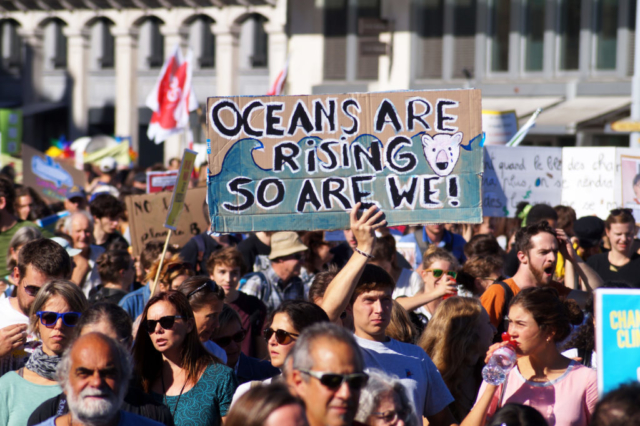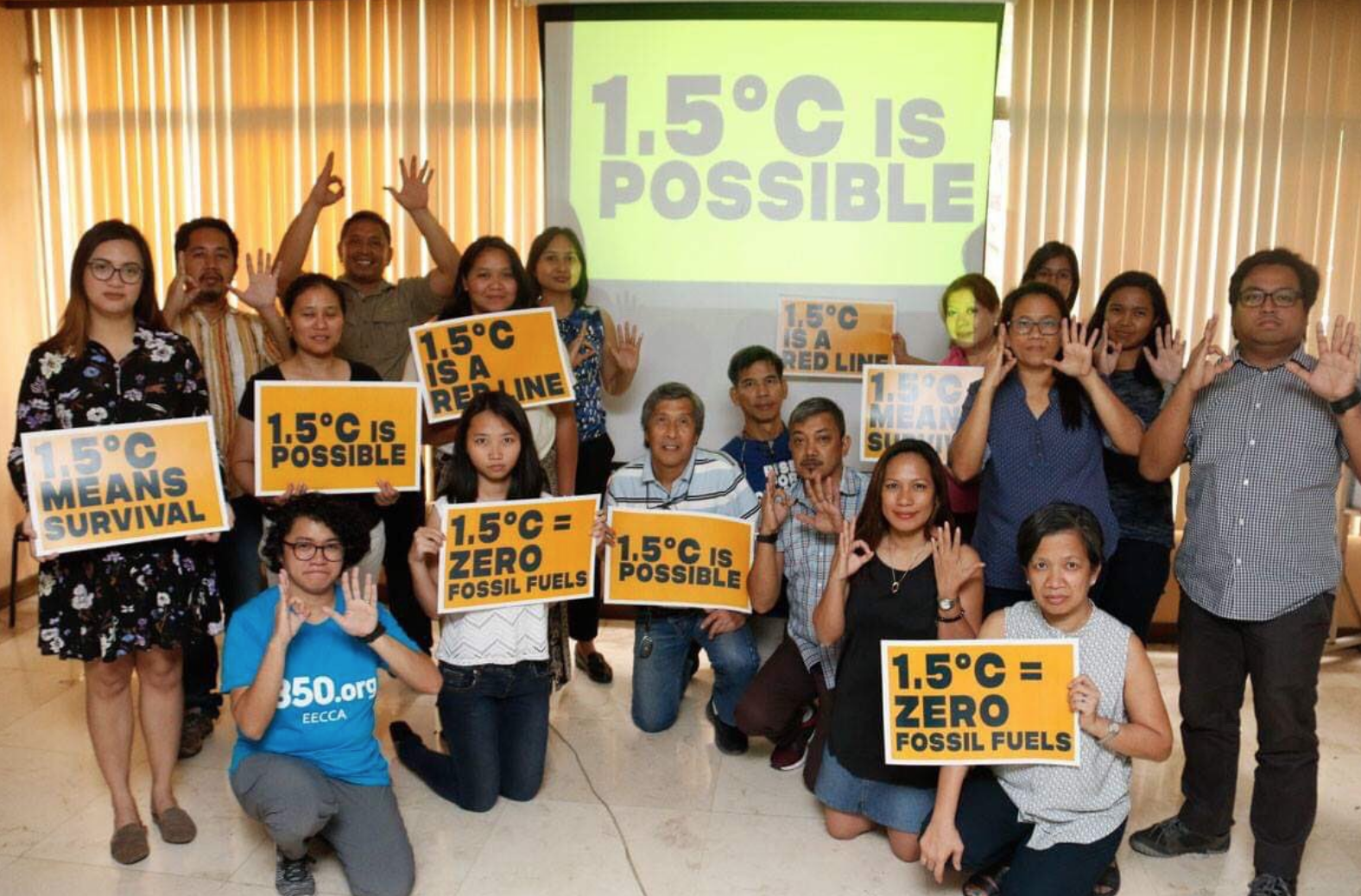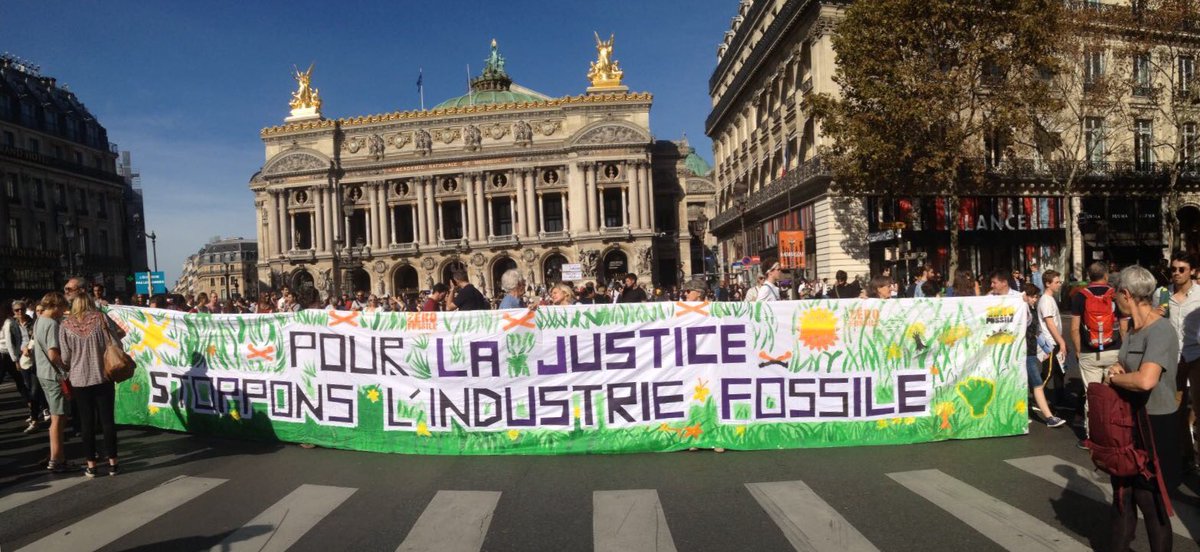If last week’s UN report on 1.5˚C has made one thing clear, it’s that business as usual just isn’t working. The fossil fuel industry continues to operate on a model that is dooming us to a hot new world – one that ensures profit for a few and pain for most.
It’s obvious something has to change. We need a different politics that is going to somehow wake people up and move politicians and industry off the fence in big ways.
Thankfully, many people around the world, not paralyzed, but motivated by the latest science, showed over the past week that they’re willing to step up to this challenge, and take targeted political actions, together, to enact meaningful change. Through a range of tactics, they’ve brought a strong, pointed message to decision makers: 1.5˚C means no more support to the fossil fuel industry, in any form.
Delivering the Science
In Australia, people organized 47 different delivery actions to representatives across the country. Printing out summaries of the report, groups of people showed up at their local politicians’ offices to demand that they vote and act in line with the climate science – refusing fossil fuel money, saying no to projects like the Adani mine, and promoting renewable energy. Actions like these have a big impact, but take surprisingly little resources to organize. Most of them came together with just a few friends and a couple days’ foresight.
Across Australia, people have been delivering copies of the #ipcc report to local officials with a clear message: 1.5˚C means zero fossil fuels. #FossilFree #1o5C
No matter where you live, you can too: https://t.co/fLfVN3DZHd pic.twitter.com/46pwlUsAVc
— 350 dot org (@350) October 12, 2018
Not a penny more to the fossil fuel industry
On Saturday, Switzerland saw perhaps its biggest-ever climate march in history. In Geneva, 7,000 people marched straight up to the banks, honing in on the role that banks play in financing fossil fuels. They targeted Swiss National Bank and Credit Suisse, a major funder of fossil fuel projects including Keystone XL and Dakota Access Pipeline in North America. In a powerful statement, they taped the IPCC report to the office walls.
They’re not the only ones targeting the banks. In New Zealand and England, groups targeted ANZ and Barclays’ respectively, calling on them to ditch fossil fuel investments in favor of renewables. It was a common tactic in many actions across Europe over the weekend, where people specifically drew out the connection that to stick to 1.5˚C, banks cannot continue to expand gas, a fossil fuel, across the continent (or elsewhere).
On Friday we called out one of the biggest roadblocks to the just transition away from fossil fuels: @ANZ_NZ
We believe in a safe climate and a better future —a just, prosperous, and equitable world built with the power of ordinary people. Join us!https://t.co/DVKVOkfRJw pic.twitter.com/CV4PmeN2iW— 350 Aotearoa (@350nz) October 15, 2018
Today we joined Oxford residents to tell @Barlclays to stop financing fossil fuels like #fracking in Yorkshire ❌#1o5C #gasdown #frackdown #DivestBarclays #fossilfree #divest pic.twitter.com/R7lcecxO2Q
— People & Planet (@peopleandplanet) October 13, 2018
Educate and empower
Spreading the word, educating, and connecting with others who are concerned is powerful. It builds power down the line, a common understanding, and helps ensure the fight can be maintained. In the Philippines, civil society groups organized a briefing on 1.5˚C to explore how it can be utilized in strengthening resolve for climate action and as a guide to building a new economy that works for all.
And in Argakhachi, Nepal, a one-day workshop led by Powershift Nepal brought the conversation to this school.

Direct action
Sometimes, it pays to be direct. On the frontlines of climate change in Bangladesh, women formed a human chain in the Sundarbans, a particularly vulnerable area threatened by coal. And on the Buriganga River in Dhaka, men organized their boats into a sun each with printed messages on 1.5˚C.

Finally in France, just over a month after 150,000 people came out for the record-breaking March for the Climate, over 100,000 were out again pushing the need for climate action in 86 cities across France. Local groups have sprung up in tens of cities across the country over the past month; they can focus on local targets in the long run and quickly mobilize for big moments like this.
The science is clear – we’re running out of time for band-aid solutions to a massive problem. 1.5˚C is a red line for the communities the world over, and the only way we can ensure we don’t cross it to oppose the fossil fuel industry en masse, and push for rapid transition to renewable energy. The last week has shown there are plenty of tools to do it. So what’s stopping you?




